-
Posts
4,692 -
Joined
-
Last visited
Content Type
Events
Forums
Downloads
Quizzes
Gallery
Blogs
Posts posted by ASEAN NOW Content Team
-
-
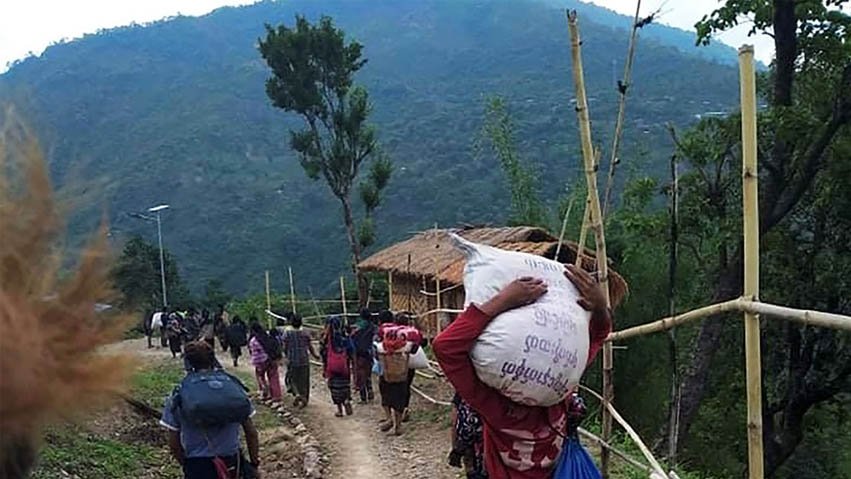
More than 20,000 people who have fled their homes in territory held by Karen National Union (KNU) rebels are in desperate need of food and other supplies, according to a rights group, as combat in the area intensifies.
"You could say this is an emergency scenario for the IDPs," said Naw Htoo Htoo, a spokesperson for the Karen Human Rights Group (KHRG).
"As of late March, there were roughly 20,000 IDPs."
That number has been steadily rising... and continues to rise.
The fighting hasn't ceased and has extended to new areas," she told Myanmar Now.Karen IDPs are in the worst circumstances they've been in since a military coup last year pushed the region back into violence after a shaky ceasefire, she added.
She said it was critical for international humanitarian organisations to offer assistance, but the junta has enforced road closures and other restrictions that have made reaching those in need extremely difficult.
According to KIC, a local news site, the whole population of Htee Muu Hta hamlet in Myawaddy Township was displaced after a junta airstrike on April 12 and has been sheltering on fields and plantations with little to no food."Right now, the most important thing we need is food," Nobel, a local charity volunteer assisting displaced residents in Myawaddy, said.
"Food can be scarce at times because we can only acquire supplies once a week due to the closure of all import channels from Thailand."
According to him, the Lay Kay Kaw area has about 1,000 IDPs, the majority of whom are from the villages of Htee Mei Wah Khee and Hpa Lu.
"Every day, battles have been taking place in Lay Kay Kaw, and we don't know when they'll be allowed to return," he said.
"As the rainy season approaches, I made them tiny houses."Many of those displaced, according to Naw Htoo Htoo of KHRG, are supposed to be planting crops now that the rainy season is approaching, but are unable to do so since they are unable to return home, putting them in even greater hardship in the coming months.
"In Karen State, 70% of the farmers barely generate enough money to maintain their family," she claimed.
"If they cease farming, they won't be able to feed themselves."
"They must destroy the farmlands now in order to begin planting when the rainy season arrives.
They can't go home, though, because they barely made it out alive.
If aid from donors and humanitarian organisations does not come in time, they will risk food insecurity as well," she added. -
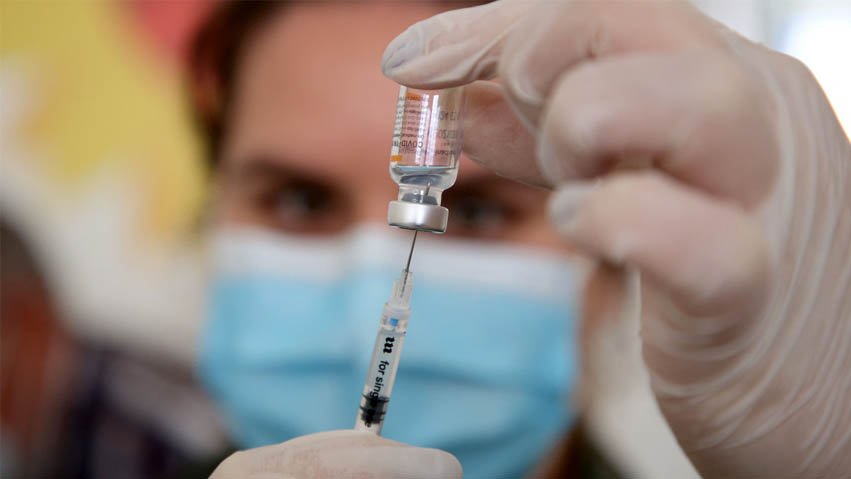
Dr. Htar Htar Lin, who oversaw Myanmar's COVID-19 vaccine rollout under the deposed civilian administration, was sentenced to three years in prison with hard labour by Myanmar's junta on corruption allegations when she refused the dictatorship international COVID-19 grants.
According to Junta-controlled newspapers, the director of the national immunisation programme defied ministerial orders by returning a 168 million kyat (US$91,000) Global Alliance for Vaccines and Immunization Health System Strengthening grant from Unicef and the World Health Organization on Feb. 10, 2021, shortly after the coup.According to the junta's media, the return of the grant depleted governmental assets, and she was found guilty under the Anti-Corruption Law.
Since June of last year, the well-respected director has been charged with three more counts, including high treason and incitement, as well as violating the Unlawful Association Act for allegedly assisting the civilian National Unity Government (NUG), which the junta has labelled a terrorist organisation.
The charges can result in a sentence of up to 20 years in jail.
Dr. Htar Htar Lin was arrested in June of last year in Yangon after an arrest warrant was issued shortly after the coup.
At the same time, her seven-year-old son, husband, friend, and daughter were all detained.
Her valuables were seized and her home was ransacked by the dictatorship.Dr. Htar Htar Lin emailed colleagues in early February last year, warning that she would likely face accusations of misusing funds if the government attempted to steal from the immunisation programme.
"We can't let military dictators utilise COVID vaccinations as a weapon," the email stated.
When you read this, I may still be free or detained by the military.
But I'll never give up."
The junta also convicted Dr. Soe Oo, who chaired the external aid committee supervising the COVID-19 award, to the same corruption charges on Wednesday for failing to prevent Dr. Htar Htar Lin from returning the funds.
On Wednesday, he was sentenced to two years in prison with hard work.After the coup, both high-profile doctors refused to work for the state and joined the civil disobedience movement (CDM).
On Feb. 3, medics initiated the CDM in protest of the coup, which was quickly joined by other government employees across the country.
Last year, the junta said that Dr. Htar Htar Lin admitted to using the apps Signal and Zoom to communicate with Dr. Zaw Wai Soe, the NUG's health minister.
She assisted in the preparation of speeches and NUG health-care policy documents, as well as the planning of Zoom meetings and the implementation of NUG health-care initiatives, including estimating the required drugs and expenditures, according to official media.It levelled the same charge against another 26 doctors, alleging that they had accepted NUG positions in public health, health administration, and clinical care.
Dr. Maung Maung Nyein Tun, 45, a lecturer at Mandalay University's Department of Surgery, was one of those indicted and died in junta prison with COVID-19 in August last year.
Since the February 1 coup, 286 health workers have been imprisoned, according to Physicians for Human Rights.
By Jan. 10, the junta had attacked at least 128 clinics and hospitals, killing at least 30 health workers, according to the group.Discover Cigna’s range of health insurance solutions created for expats and local nationals living in Thailand - click to view
-
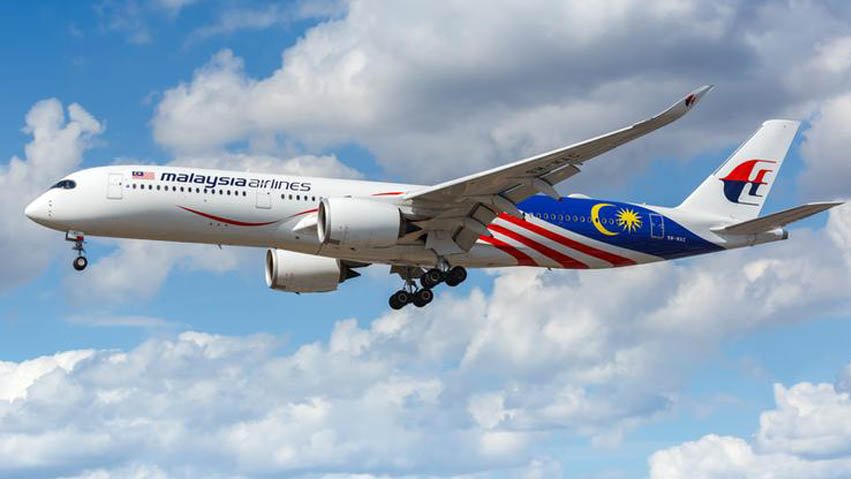
Malaysia Airlines' parent company, Malaysia Aviation Group (MAG), has returned to profitability, despite warnings about the impact of rising fuel prices on operational costs.
The group had a positive EBITDA of MYR433 million ($101 million) for the year ended December 31, 2021, compared to a loss of MYR1.8 billion in 2020.
MAG did not provide a breakdown of how each of its units performed throughout the year.Cargo operations were an important revenue driver during the period, with revenues of roughly MYR3 billion reported by freight business MAB Kargo.
The unit also surpassed revenue projections by 71 percent, according to MAG.
As a result of superior airline revenue maximisation, Malaysia Airlines was able to boost passenger yield despite a decline in traffic and capacity - by 62 percent and 71 percent, respectively - despite a drop in traffic and capacity.
The airline firm exited reorganisation in 2021, allowing it to "holistically rebuild its balance sheet and address decades-long legacy difficulties," according to the company.MAG claims that by restructuring, it was able to reduce liabilities by nearly MYR15 billion and remove debt by MYR10 billion.
"Lower operating costs from the group's cost-cutting/avoidance measures, as well as lower lease costs following its successful restructuring, contributed further to the improved performance in 2021," the company says.
According to MAG's forecast, cargo operations will continue to drive revenue growth.
It says that the liberalisation of borders throughout the world is causing a "significant increase" in passenger travel demand.
It had stated that by the end of the year, it intends to run at 70% of pre-pandemic capacity. -
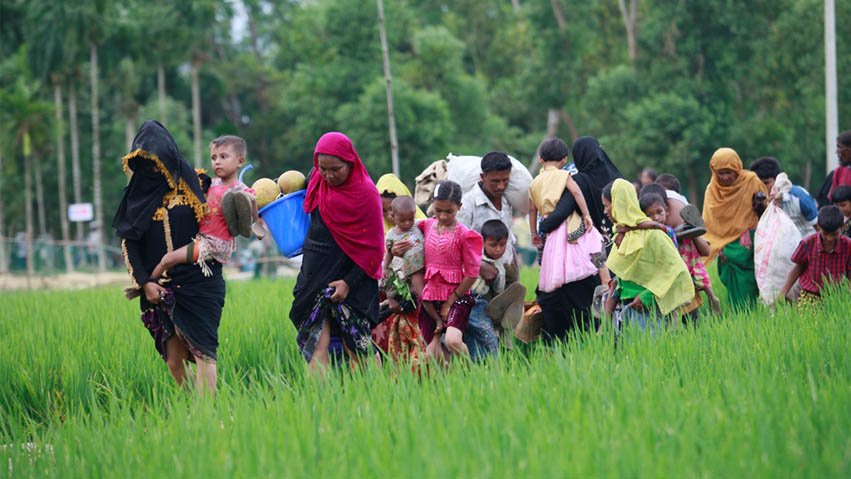
After more than 500 largely Muslim Rohingya migrants fled a temporary immigration detention centre in the country's north, Malaysia set up barricades and deployed police, immigration, and volunteer security forces.
After a riot in the facility, which was formerly used as a camp for Malaysia's short-lived national service programme, 528 Rohingya left the centre in the northern state of Penang a few hours before dawn on Wednesday.Six persons were killed when they attempted to cross a nearby highway at about 6:50 a.m. (22:50 a.m. GMT on Tuesday) and were struck by fast-moving automobiles.
"The victims were scattered all over the roadway," said Atan, a nearby resident who witnessed the tragedy while bringing his children to school.
"It was a depressing scene."
Innocent lives were gone in the blink of an eye."
Women and children were seen jogging down the side of the road in the dark in videos uploaded on social media.
Others depicted groups of individuals squatting on the highway verge after being apprehended by police.Local villagers "apprehended" 88 of those who had escaped the centre, according to the publication, while immigration official Khairul Dzaimee Daud said 362 people had been re-arrested by 10 a.m. (02:00 a.m. GMT) on Wednesday.
The Rohingya were able to flee the centre after smashing through obstacles and a door, according to Khairul.
There were 23 guards on duty at the time, and they requested assistance from the police and other law enforcement organisations, he said.
The reason for the riot and break-out is still being investigated.
Inside the time, 664 prisoners were being kept at the detention centre.Hundreds of thousands of Rohingya Muslims fled Myanmar five years ago, fleeing a horrific military campaign that is now being investigated by the International Criminal Court for genocide.
Many people stay in Bangladesh's massive refugee camps, while others undertake the increasingly deadly trek over the Bay of Bengal and the Andaman Sea to reach Indonesia and Malaysia, despite the fact that neither nation is a member to the UN Refugee Convention.
According to the UN refugee agency, over 181,000 persons are currently living in Malaysia as refugees and asylum seekers, with Rohingya constituting about 57 percent of the total. -

To commemorate Earth Day, CNA examines how climate change has hastened the melting of Papua's Eternity Glacier.
Primary school pupils in Indonesia are taught that the country is home to a noteworthy feature: the only tropical glacier in the region, located in Papua's Jayawijaya highlands.
Some name it the Eternity Glacier since it is located at Jaya summit, or Puncak Jaya in Indonesian.
However, in a few years, teachers may not be able to tell their students about this geographical trivia.The glacier's days are numbered after nearly 5,000 years of existence, as study suggests that it is melting and only a small portion of it remains.
Mr Donaldi Permana, a climate research and development coordinator with the country's meteorological, climatological, and geophysical agency (BMKG), told CNA that the glacier would be gone between 2025 and 2027.
Since 2009, he has spent a lot of time studying the glacier.The melting of the glacier is thought to be caused primarily by global warming.
Mr. Permana explained that this has been happening since the industrial revolution in 1850, when industrialised countries transitioned from rural economies to ones dominated by industries, which emit greenhouse gas emissions, causing global warming.
"However, we didn't realise the (Indonesian) glacier was melting until the 1990s," he said.At 4,884 metres above sea level, Jayawijaya Mountain is found in Lorentz National Park.
It is Indonesia's highest peak, and some people refer to it as the Carstensz Pyramid because the mountain contains multiple summits with distinct names, according to Mr Permana.
Mr Permana pointed out that other tropical glaciers in South America and Africa are also melting.
However, because Puncak Jaya is lower in elevation than other mountains with tropical glaciers, it will vanish sooner in Indonesia.
Dwikorita Karnawati, the head of the BMKG, also told parliament at the end of last month that the glacier might be gone by 2025. -
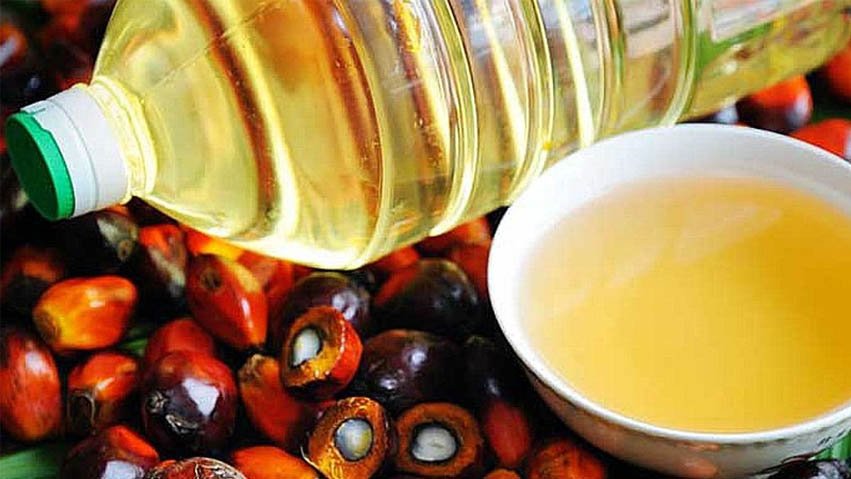
After President Joko Widodo announced a halt to shipments of cooking oil and its raw material on Friday to control surging domestic costs, Indonesia will essentially restrict palm oil exports from April 28 until further notice.
Jokowi, as the president is called, said the policy sought to secure the availability of food supplies at home in a video broadcast.
"I will monitor and analyse the execution of this policy to ensure that cooking oil is abundant and affordable in the home market," he said.After Indonesia announced the embargo, U.S. soyoil futures rose more than 3% to a new high of 84.03 cents per pound.
According to Atul Chaturvedi, head of trade group the Solvent Extractors Association of India (SEA), the decision will harm consumers not only in India, the world's largest importer, but also globally, because palm oil is the world's most consumed oil.
"This is a sad and completely unexpected decision," he remarked.Due to rising demand and weak output from top producers Indonesia and Malaysia, as well as a previous move by Indonesia to restrict palm oil exports in January that was later lifted in March, global prices of crude palm oil, which Indonesia uses for cooking oil, have soared to historic highs this year.
Meanwhile, Russia's invasion of Ukraine has disrupted global edible oil markets this year, cutting off shipments of sunflower oil from the region.
Russians refer to their effort as a "special operation."
The Black Sea accounts for 76 percent of global sunoil exports, and since Russian forces invaded Ukraine in February, commercial shipping from the region has been severely hampered."The sky would be the limit for edible oil prices today," a Mumbai-based trader at a global trading firm said. "Buyers were betting on palm oil after sunoil supply decreased due to the Ukraine crisis," he added.
"At this point, they (customers) have little choice because soyoil supplies are equally restricted."
More than half of the world's palm oil comes from Indonesia.Since 2018, Indonesia has prohibited the issue of new permits for palm oil plantations, which are widely blamed for deforestation and habitat destruction of endangered creatures such as orangutans.
GAPKI, the palm oil industry's trade body, said it was convening to discuss the president's announcement.
In a text message, a GAPKI spokeswoman added, "As citizens, we obey the president's decision." -
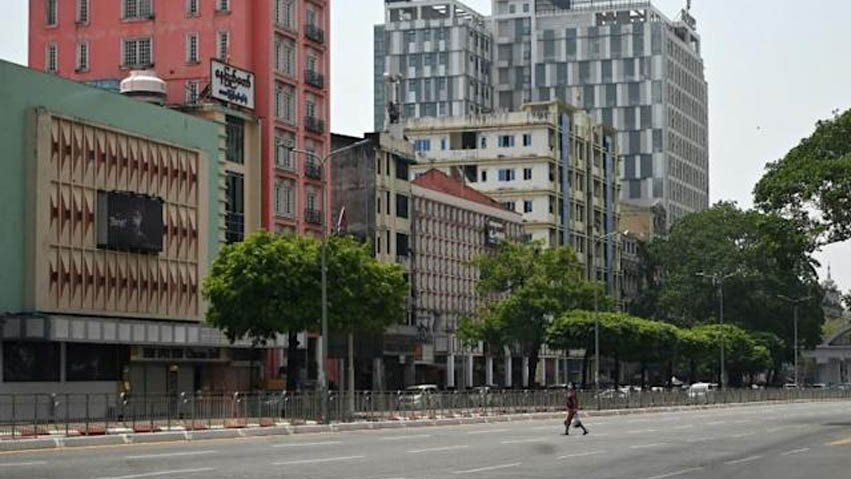
YANGON—As combat between the military and coup opponents raged across the country, Myanmar's traditionally exuberant new year water celebration was characterised by silence and boycotts on Wednesday.
Since the military deposed Aung San Suu Kyi's administration last year, the Southeast Asian country has been in chaos, with massive protests and a brutal crackdown.The Thingyan water festival, which is held as part of a cleansing ceremony to usher in the Buddhist new year, is usually defined by exuberant chaos as crowds engage in large-scale street water battles.
However, AFP correspondents said that central Yangon was calm on Wednesday, with no trace of the typically raucous festivities.
Residents on the other side of the street watched as a small group of people — including several youngsters and a soldier — splashed each other inside the shelter of a sandbagged guard post.As part of a junta-sponsored programme, there was a substantial security presence leading to Yangon's Sule Pagoda, with barricades blocking the access to a stage where celebrities performed traditional melodies and choreographed dancers swayed.
In Mandalay, Myanmar's second largest city, state television footage showed singers and musicians singing traditional Thingyan melodies.
However, the tone was gloomy there as well, as the military continues to crack down on opposition.
"This year, we have no plans to celebrate the water festival," local Zin Zin told AFP, seeking anonymity."I don't go out, and I don't care if other people are celebrating."
We're concerned in case something goes wrong."
Meanwhile, photographs from across the country revealed minor anti-junta protests, with some activists holding placards calling for a boycott of the festivities.New Clashes
Fighting between the military and coup opponents was reported around Myanmar as junta-sponsored festivities took place.
Ethnic rebels clashed with junta troops near Myawaddy in the east on the latest day of fighting that local media sources indicate has driven hundreds fleeing across the border into Thailand in recent weeks.According to Padoh Saw Taw Nee, a spokesman for the Karen National Union, which claims to represent the country's Karen minority and has fought the military for decades, fighting started Wednesday morning along the Asia Highway, which connects Thailand and Myanmar.
In recent days, junta troops had ordered additional airstrikes, he said.
According to local media, junta troops overran a post held by a local "People's Defence Force," a civilian militia that has sprung up to combat the military, on Tuesday in northern Sagaing state.Following days of combat, the junta announced on Monday that its troops had expelled hundreds of anti-coup fighters and ethnic insurgents from Pinlebu town in the region.
Airstrikes had been called in to reinforce ground troops, according to a military source who spoke to AFP on the condition of anonymity. He also confirmed that intense fighting had occurred elsewhere in the region in recent days.
According to a local monitoring group, more than 1,700 individuals have been slain in a military crackdown since the coup. -
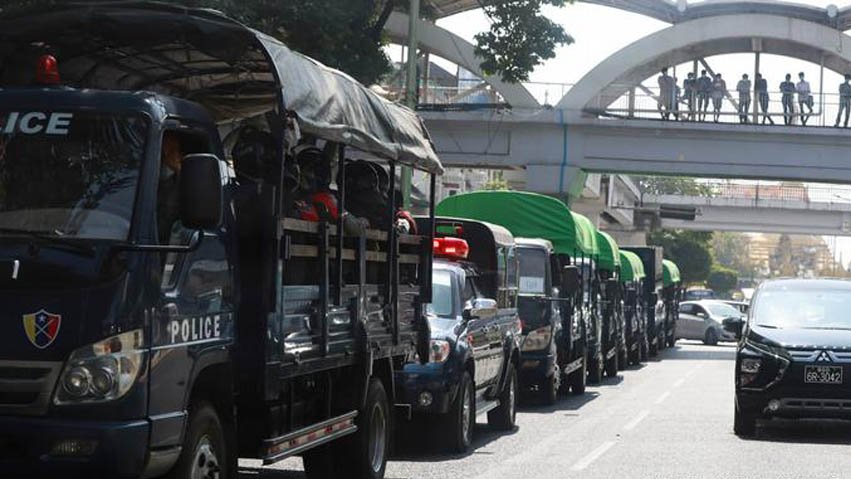
According to a freedom of expression advocacy group, Myanmar arrested more writers and public intellectuals in crackdowns last year than any other country.
PEN Myanmar's military jailed at least 26 writers in 2021, according to the annual Freedom to Write Index, as it moved to repress opposition after seizing power from Aung San Suu Kyi's democratically elected government.
According to the PEN survey, Myanmar holds the third-highest number of writers and public intellectuals in the world (26), after only Saudi Arabia (29) and China (21). (85). Many of those detained in Saudi Arabia and China are serving long terms and had previously been arrested.
Advertisement
According to PEN, at least 277 writers were imprisoned last year in 36 countries for their writing or exercising their right to free expression.The figures, according to Karin Deutsch Karlekar, head of PEN America's "free expression at danger" programmes, are "intolerably high."
"Writers and public intellectuals are being imprisoned in Myanmar and around the world for the 'crime' of exercising their freedom of expression and, in many cases, for using the power of the written word to combat totalitarianism," she said.
Following the military takeover in Myanmar in February 2021, several poets and authors utilised their work to express outrage and anguish over the crimes committed by the military and to incite dissent.According to PEN, the majority of the 26 people seized in Myanmar in 2021 are being held in jails without being accused.
Many people have continued to write while in hiding or temporary exile, Karlekar added, sharing their work on Facebook or other applications where they feel safe.
Due to security concerns, others have been driven to self-censor.
There have been several reports of mistreatment and torture in Myanmar's detention facilities. -
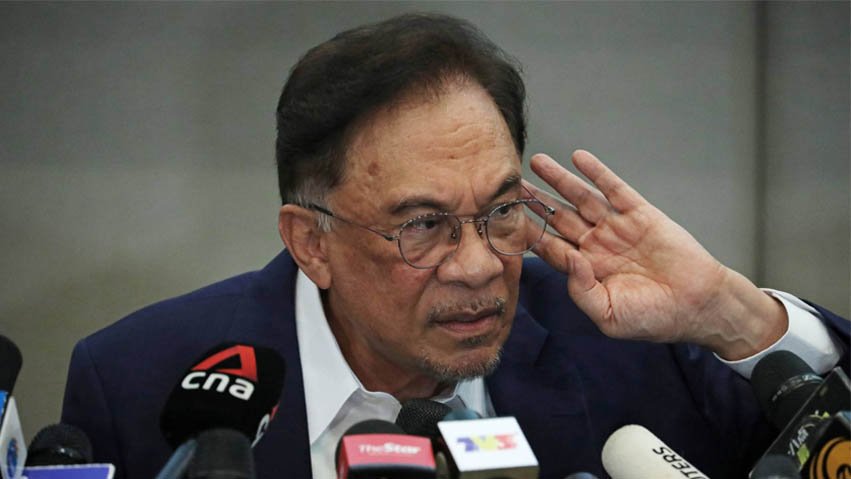
According to opposition leader Anwar Ibrahim, Foreign Minister Saifuddin Abdullah should take responsibility for Prime Minister Ismail Sabri Yaakob's recent travel to the United Arab Emirates (UAE) (Apr 14).
Mr Anwar stated in a video statement on Facebook that only Mr Saifuddin, not the ambassador or any lower-level officials, should be held responsible for the chaos."In my many years as a minister in past governments, we have never heard of a prime minister's official visit not being accepted by the host countries," Mr Anwar, who is also the chairman of Pakatan Harapan (PH) and the president of Parti Keadilan Rakyat, said (PKR).
Malaysia has never been humiliated in such a way, he claimed, because of the carelessness and delay with which the visit was handled.
He also demanded that the foreign minister release a statement about what had happened.According to Bernama, the Malaysian foreign ministry, or Wisma Putra, said on Monday that due to a lack of coordination, the prime minister was forced to wait in the arrival area at Dubai International Airport for passport and immigration clearance.
When the prime minister landed in Dubai on March 29, it was also claimed that there was no security coverage or motorcade for him.From March 29 to March 31, the prime minister and his entourage were in the UAE, where he attended the closing ceremony of the Malaysia Pavilion at the Dubai Expo, as well as an appreciation ceremony for the pavilion's officers and staff.
Following the incident, Malaysia's ambassador to the UAE and consul-general in Dubai were summoned by Wisma Putra.
The two ambassadors, according to Wisma Putra, failed to alert the foreign ministry about the World Government Summit held at the Dubai Expo.
Otherwise, the prime minister may have delivered a speech there. -
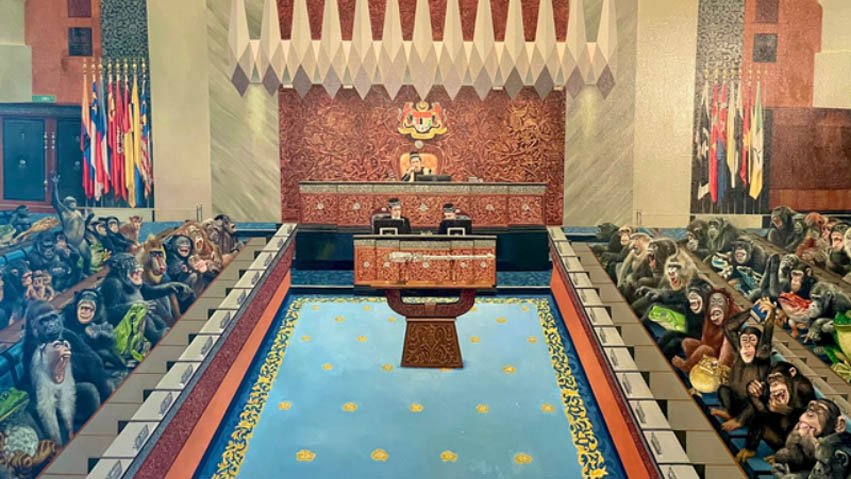
Despite the government's repeated delays over a proposed anti-hopping legislation, the Sultan of Malaysia's richest state has purchased a picture of apes and frogs occupying the country's parliament benches.
Hundreds of apes, including orangutans, baboons, and chimps, shriek, yawn, and stretch along the rows of seats on both sides of the legislative assembly in the picture. Scattered among them are several frogs.According to an Instagram post by his office on Tuesday, Sultan Sharafuddin Idris Shah Alhaj, the monarch of Selangor state, was immediately taken by the artwork and had it installed in his private study area.
Two Instagram photographs showed the king standing next to the painting for scale; the piece, frame and all, was barely taller than his shoulders.
"His Highness hopes to auction off the painting at some point in the future, with the money going to charity," said the caption.The announcement came a day after Malaysia's parliament convened for a special session to discuss constitutional modifications that would have paved the way for a future anti-defection bill. The proposed bill was supposed to be introduced in parliament in March, but it has been postponed twice now, with no new date established.
Since the last general election in 2018, 39 of Malaysia's 222 legislators have moved parties, while the country has had three different prime ministers in the same time span. On Monday, Parliament and Law Minister Wan Junaidi Tuanku Jaafar remarked, "This is a clear indicator that our country's democracy is unhealthy and at an alarming level."
The Sultan of Selangor is one of Malaysia's nine Malay monarchs.
Every five years, they take turns as King, and in recent years, they have become increasingly vocal about the country's politics. -
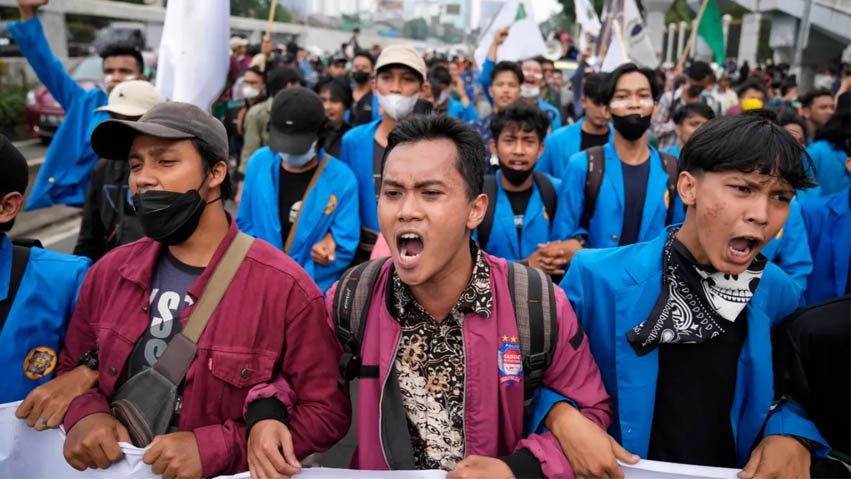
Thousands of students protested a hike in food prices and a probable extension of President Joko Widodo's term in office across Indonesia on Monday.
Students rallied in South Sulawesi, West Java, and Jakarta, wearing neon jackets and raising megaphones, in response to reports that President Widodo may try to postpone the 2024 general elections in order to stay in power.
The country's two-term limit would be violated.
Widodo is in the closing years of his second term, with the next election scheduled for 2024.Demonstrators screamed about defending Indonesia's democracy and reining in the country's increasing fuel and food prices.
"We demand that politicians do not modify the country's constitution," one protest organiser, named only as Kaharuddin, told The Associated Press.
"We want them to pay attention to people's wishes."
The police used tear gas and water cannons to disperse the demonstrators.A university instructor who was engaged in the protest was beaten and stamped on by a "nonstudent" gang, according to Jakarta police.
According to authorities, six officers who attempted to assist the instructor were also harmed.In order to avoid a repeat of the strongman regime,
Monday's rallies recalled those of nearly two decades ago, when student-led demonstrations ousted President Suharto's dictatorship, which had ruled with an iron fist for decades.
In 1998, he was deposed.According to recent polls, Widodo has maintained some popularity, unlike Suharto.
However, "Jokowi," as the president is popularly called, has been chastised for failing to speak out aggressively against reports of a possible postponement of the February 2024 elections.
Rising tensions have been fanned by powerful political players, including two ministers, who publicly favoured a postponed election.
Widodo has publicly expressed his opposition to the plan.
He told his cabinet last week to focus on addressing the country's economic woes, stressing that "nobody should bring up a (presidential) term extension or election delay anymore.”However, there is still a lot of doubt about the president's intentions.
-
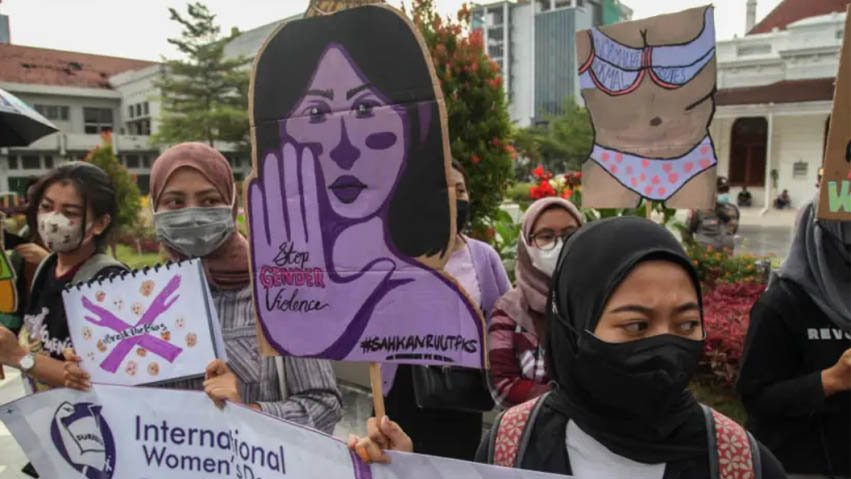
The bill was first suggested in 2012, but conservative groups in the predominantly Muslim country objected.
Indonesia's parliament has enacted a groundbreaking measure to combat sexual abuse, six years after negotiations began. The bill aims to provide a legal framework for victims to seek justice.
At a plenary session in parliament, a majority of parliamentarians supported the bill, overcoming resistance from some conservative factions in the world's largest Muslim-majority country."We hope that the adoption of this law would bring an end to incidences of sexual violence," House Speaker Puan Maharani stated.
Activists have largely praised the measure, however some have criticised its narrow reach, which includes only a few sex crimes and leaves out a specific clause on rape, which the government has promised will be included in future legislation.
"This is unquestionably a step forward," said Asfinawati, a legal specialist at Jentera School of Law who has aided sexual abuse victims, while emphasising that the penal code's present definitions of rape should be clarified.Sexual abuse accusations have been on the rise in Indonesia, where the lack of a dedicated legal framework has made prosecuting sex crimes difficult, and victims' fears of being shamed during questioning have stopped many from speaking out, according to advocates.
The law's final form includes prison penalties of up to 12 years for crimes of physical sexual assault, both inside and outside of marriage, 15 years for sexual exploitation, nine years for forced marriage, including child marriage, and four years for disseminating non-consensual sexual content.It said that convicted abusers must pay reparations and that authorities must offer victims with counselling.
Earlier versions of the bill would have included abortion as well as a stricter definition of what constitutes rape.
After the horrifying gang rape and murder of a 13-year-old schoolgirl by more than a dozen men, the National Commission on Violence Against Women (Komnas Perempuan) and civil society groups recommended legislation in 2012, and a draught was brought to the house four years later. -

According to Minister of Health Dato Seri Setia Dr Mohd Isham Jaafar during the daily news conference on April 6, the recently discovered Omicron sub-variant named 'XE' is a combination of the BA.1 and BA.2 sub-variants, with a slightly higher rate of transmission than the BA.2 sub-variant.
The Omicron XE sub-variant is now circulating in the United Kingdom (UK) and has recently been discovered in Thailand.
Dr. Mohd Isham reassured the public that the sub-variant has not been identified in the Sultanate, and that the Ministry of Health (MoH) is continuing to monitor the situation through genomic sequencing surveillance."The Ministry of Health is regularly monitoring the situation, and our neighbouring nations have yet to disclose any detection of the new sub-variant," the minister stated, advising the public, particularly those travelling abroad, to ensure they have had a booster vaccination.
"We know that the pandemic abroad is still going on, and if it continues, this variety is predicted to be identified," Mohd Isham stated, emphasising that vaccination is one of the ways to protect yourself.
The World Health Organization (WHO) has reported the XE sub-variant, but it has yet to be classified as a variant of interest or concern, according to the minister, and it is being monitored.Discover Cigna’s range of health insurance solutions created for expats and local nationals living in Thailand - click to view
-
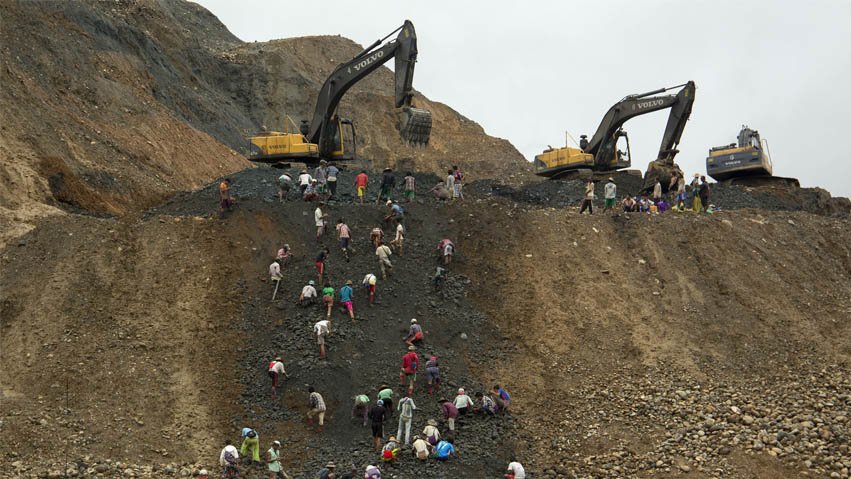
According to Colonel Naw Bu, the Kachin Independence Army's (KIA) media officer, the Myanmar military regime's recent order suspending all jade mining in Kachin State was issued with the goal of exerting pressure on the ethnic armed organisation.
In the March 31 issues of the regime's newspapers, Myanma Gems Enterprise, a state-owned company under the Ministry of Natural Resources and Environmental Conservation, announced that jade mining in Lone Khin, Hpakant, Maw Lu, and Maw Han would be prohibited in order to preserve the country's valuable resources for future generations, as well as the environment and the safety of jade miners.The KIA is still debating how to respond to Kachin's ban on jade mining.
In the meanwhile, it will wait to see how the government would deal with enterprises that do not follow the directive.
"We'll have to wait and see."
Hpakant is home to many people from all around Myanmar.
As a result, their order will only harm the people, and we shall see if the miners obey their orders.
"I believe the prohibition would exacerbate the problem," Col. Naw Bu said, alluding to the negative impact on the hundreds of thousands of people employed there and the many more who work in the jade sector.
According to a Kachin State jade miner, the KIA collects taxes from the majority of the state's jade mining enterprises."The KIA controls the majority of the jade mines in this area.
Even military-affiliated businesses are required to pay taxes to the armed force.
As a result, [the dictatorship] does not want others to profit from [mine] when it is unable to do so.
It believes that earnings from jade mines would go to the resistance movement, therefore it's trying to sabotage the industry," he explained.
The KIA, which is fighting for more autonomy in Kachin State, relies heavily on jade as a source of revenue.
The trade has also been the source of long-running conflicts between the KIA and Myanmar's military, which have fought for control of jade income for decades.Since the military dictatorship's overthrow last year, the armed group has publicly opposed it, and it has also trained and armed local resistance groups opposing the regime, commonly known as the People's Defense Force (PDF).
-
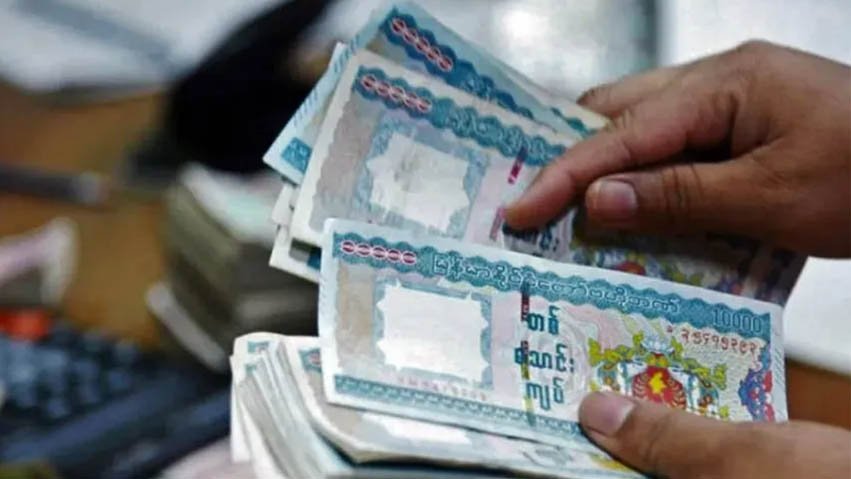
Many in Myanmar's military-run country are concerned about potential losses following a central bank edict requiring all foreign currency in bank accounts to be changed into the local currency.
Businesses and individuals were notified on Sunday that they must convert dollars and other foreign cash into kyats within one day or risk legal ramifications.It stated that foreign monies can only be sent abroad with official approval.
It stated that more information on the rules would be forthcoming.
After seizing power on Feb. 1, 2021, and deposing the country's elected government, Myanmar's military commanders are facing a slew of penalties.
The order to hand up foreign currency signals that the authorities are running out of hard currency to pay bills and buy essential goods like oil, gas, and weapons.Hard currency is also required to service Myanmar's foreign debt, which is estimated to be in the range of $10-$11 billion.
Holders of foreign currency accounts in Myanmar were told to create new accounts to convert their funds into kyats, according to a central bank edict (pronounced CHUHTs).
People who earn foreign cash are required to convert their earnings into kyats, which are not convertible and cannot be carried out of the nation.The bank employee, who asked not to be identified because they were not authorised to speak to the media, said account customers were concerned about losing money because the central bank's official exchange rate of 1,850 kyats per dollar is lower than the black market rate of 2,030 kyats per dollar.
According to one unlicensed money changer contacted on Tuesday, no trades were taking place.
When queried about the order, the majority of the seven people with foreign currency accounts indicated they had not established new accounts and were unaware of the ramifications. -
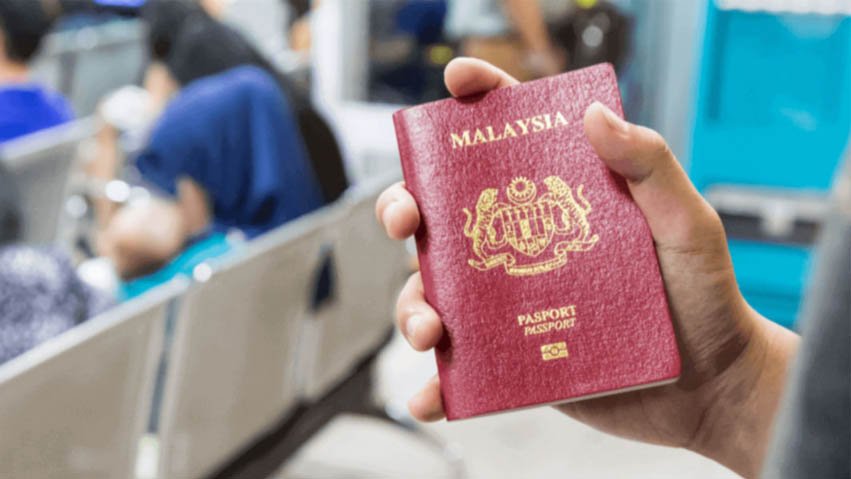
Arriving passengers in Malaysia are enraged that they must pay for an expensive professionally performed antigen quick test at the Kuala Lumpur International Airport (KLIA) despite having completed a pre-departure polymerase chain reaction test.
They also questioned the need for the on-arrival test in light of the fact that Singapore, Indonesia, and the Philippines have all discontinued or announced plans to stop doing so shortly.
Cindy Foo, 35, a Malaysian who recently returned from Jakarta, said she had to take an antigen quick test - known in Malaysia as the RTK-Antigen test - at the airport on April 1."At KLIA, we had to wait for the test.
I'm not sure why we need to be examined again when we have passed the pre-departure exam "on Wednesday, she stated (April 6).
Mr Muhamad Hamid, 39, a Singaporean traveller, also questioned the need to repeat the test.
"It would be easier for us if they eliminated on-arrival testing, as other nations in the region have done," he added.At KLIA and the low-cost terminal KLIA2, there are numerous sorts of on-arrival Covid-19 test choices, with the professional RTK-Antigen (nasal) test costing RM100 (S$32) for Malaysians and RM160 for foreigners.
If the tests are done in clinics, they usually cost roughly RM60 to RM70.
The test results take anywhere from 15 to 30 minutes to appear.
Malaysians pay RM250 for the reverse transcription polymerase chain reaction (RT-PCR) test, while international travellers pay RM350, compared to the standard prices of RM180 and RM250 at clinics.Malaysians would pay RM370 for the quick RT-PCR test, while foreigners will pay RM470.
The usual cost is less than RM350.
Provider of Covid-19 screenings on a private basis
At KLIA and KLIA2, BP Healthcare is the exclusive provider of Covid-19 RT-PCR screening, which is required of all entering passengers.
BP Healthcare was chosen through an open bidding process, according to Deputy Health Minister Noor Azmi Ghazali, and the rates had already been agreed upon.Malaysian Airport Holdings has refuted reports that one business controls RTK testing at international airports.
KLIA, Penang International Airport, Kota Kinabalu International Airport, and Kuching International Airport, according to a senior official, have four separate health service providers.Fully vaccinated travellers entering Malaysia have been required to take a PCR test two days prior to departure and a professional RTK-Antigen test within 24 hours of arrival since April 1.
While AirAsia Malaysia's chief executive officer Riad Asmat applauded the reopening of international crossings, he added that several Asean countries had made the voyage easier for travellers by simplifying testing procedures."Cambodia, for example, has abolished all testing requirements, whereas visitors to Thailand, Indonesia, Vietnam, Singapore, and the Philippines must perform one Covid-19 test (either prior to departure or upon arrival)," he noted.
"This gives you more options and makes travelling easier.
As the pandemic scenario evolves, travel processes and regulations, such as the number and type of tests required, might be reviewed on a regular basis to ensure their relevance while minimising traveller burden "Added he. -
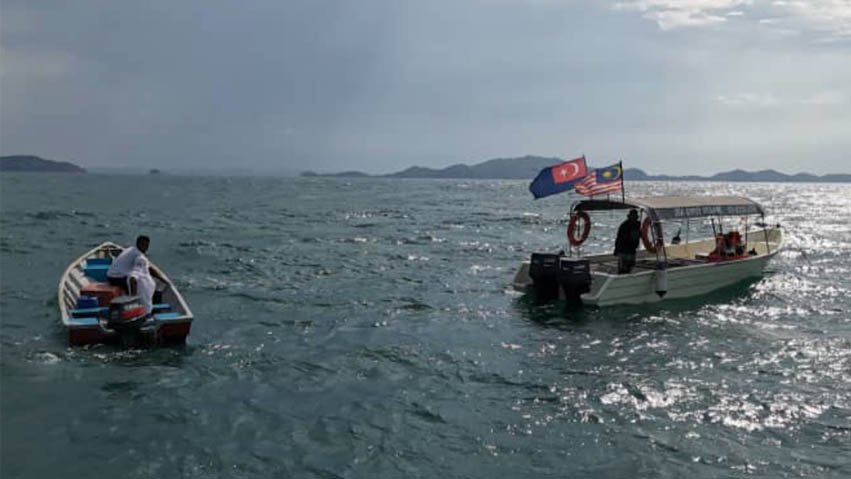
The group, which also included a French woman and a Norwegian woman, vanished while practising diving off the coast of Mersing, Germany.
Malaysian authorities were looking for four Europeans, including two Britons, who went missing during diving training off the coast of a southern island on Thursday.
A 46-year-old British man, a 14-year-old British kid, an 18-year-old French lady, and a 35-year-old Norwegian woman are among the divers.The four went missing while diving at an island nine nautical miles (16.5 kilometres) off the coast of Mersing in southern Johor state, according to the Malaysian maritime enforcement agency.
The search for the visitors began immediately after they went missing on Wednesday afternoon, but was put on hold for the night due to low visibility.
On Thursday morning, the search was restarted.Malaysian borders reopened to outsiders on April 1 after being closed for over two years due of the Covid-19 outbreak.
More than 55,000 foreigners entered Malaysia in the first four days after the border opened, according to Malaysia's immigration authorities. -
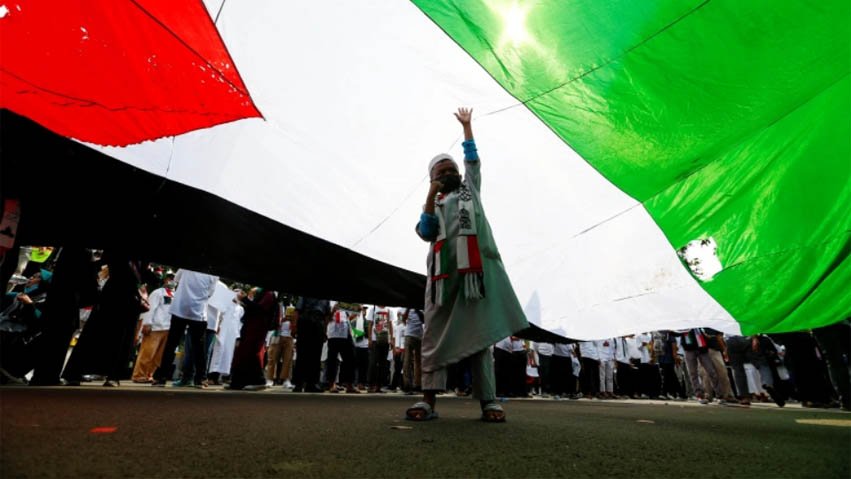
While the Indonesian government has criticised the invasion, the atmosphere on the internet favours Russia.
A story mirroring one of Indonesia's many popular soap operas has been circulating on the country's social media in recent weeks.
A woman and her faithful husband divorced, and he agreed to pay off her debts in exchange for her custody of their three children.
However, after a wealthy neighbour seduced the woman, her ex-husband became so enraged that he returned one of the children.
Meanwhile, the two others demanded that their father punish their mother.However, the deeply misogynistic plot is not a soap opera, with its images of domestic violence.
It's actually pro-Russian propaganda, with Russia playing the wronged husband and Ukraine playing the ex-wife.
The United States is the wealthy neighbour, while Crimea, Donetsk, and Luhansk are the three children.The story is believed to have first appeared on the Chinese messaging app Weibo in the days following Russia's invasion of Ukraine, but its enthusiastic reception in Indonesia via Whatsapp groups and other social media platforms such as Twitter and Facebook suggests an increasingly pro-Russian stance among Indonesians, which has surprised some.
"Pro-Russian social media has been fast to define the battle in Russia's favour," Alif Satria, a researcher at the Centre for Strategic and International Studies (CSIS) Indonesia's Department of Politics and Social Change, told Al Jazeera."They portray Russia as a dutiful husband who wants to reclaim Ukraine, an ungrateful ex-wife who allied with European criminals and has held their children, ethnic Russians, prisoner, using memes and visuals that appeal to Indonesians."
As a result of such imagery, a rift has arisen between Indonesia's official stance and social media and online opinion that is more sympathetic to Russia, if not downright favourable, in the three weeks since the war began.Indonesia supported a UN General Assembly resolution denouncing Russian aggression, as well as a decision by the UN High Commissioner for Human Rights to create an independent commission to investigate suspected human rights breaches.
In an interview with Nikkei Asia on March 9, President Joko Widodo also called for a truce.Part of the problem, according to Yohanes Sulaiman, an international relations lecturer at Universitas Jenderal Achmad Yani in Bandung, is that some Indonesians despise the US, even though they may have previously spoken out against Russia's conflicts in Chechnya and strikes on Syria.
Much of the mistrust dates back to the aftermath of 9/11 and Indonesia's response to the US's so-called "War on Terror" in the Muslim-majority country."[Pro-Russian Indonesians] dislike and distrust America."
People watched the US attack Afghanistan and Iraq in the past for false reasons like the 9/11 conspiracy and the lack of Weapons of Mass Destruction [used as the justification for the Iraq war]."
"As a result, many have begun to doubt the legitimacy of news sources, particularly in the context of the United States' mass media."
Many claim that they can't accept news from the United States without also reading the opposing viewpoint – yet the base of this is their general mistrust of the United States."According to surveys conducted by the Pew Research Center in Washington, DC, Indonesia has a higher level of scepticism toward the United States than many other Asian countries.
According to a Pew survey released in February 2020, only 42% of Indonesians have a positive view of the US, the lowest of the six countries examined. -
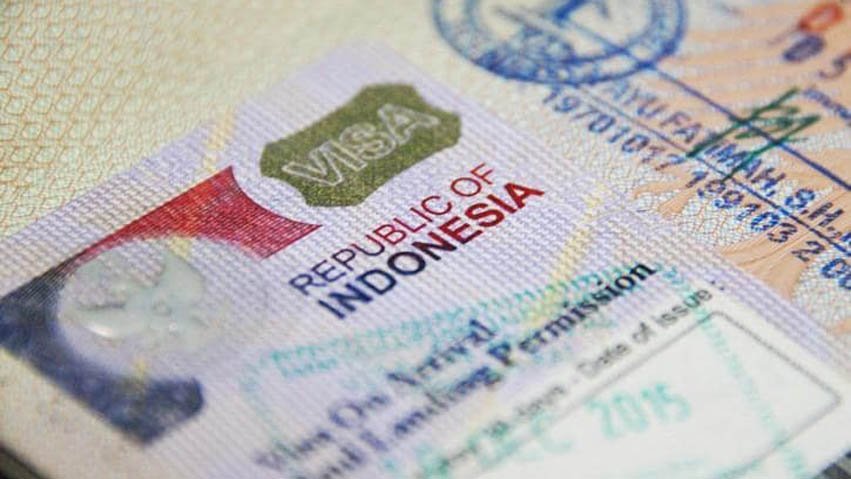
According to the Law and Human Rights Ministry's Directorate General of Immigration, the scope of the policy of issuing visa-free visits (BVKKW) and visit visas on arrival (VoA or VKSKKW) expressly for tourism has been increased, and will take effect on April 6, 2022.
"With this policy, foreigners from nine ASEAN nations can enter with visa-free visits, while foreigners from 43 countries can be issued special VoA or special tourist visas," said Immigration Traffic Director Amran Aris in a written statement on Tuesday, April 5th.This policy is outlined in the Director-General of Immigration's circular letter IMI-0549.GR.01.01 dated 5 April 2022, which addresses immigration relaxation in favour of long-term tourism during the COVID-19 pandemic.
Soekarno Hatta International Airport in Jakarta and Yogyakarta International Airport in Yogyakarta can supply VoA after being the first to open Bali.Requirements for a visa-free visit and a letter of authorization
To obtain a visa-free visit or a VoA, you must first:- Foreigners must have a passport from one of the designated countries that is valid for at least six months.
- Foreigners must also have a return ticket or a pass in order to continue their travel to a different nation.
- Proof of payment for a visa on arrival (for VKSKW) and proof of insurance in accordance with the COVID-19 Task Force Chair's instructions.
"The Rp500,000 pricing for VoA (VKSKKW) is in compliance with Government Regulation No. 28 of 2019."
The charge is Rp500,000, and the extension is the same," Aris explained.
"A visit permit issued under a VoA or VKSKKW can be renewed once for a period of 30 days at an immigration office in the area where the foreigner would be staying while in Indonesia."Visa-free visits and VoA visit permits cannot be transferred.
The holder is also not permitted to seek for a visit permit renewal through the issuance of an onshore visa.
Aris also urged travellers and tourism industry participants to follow immigration regulations.
To facilitate foreigner supervision, the owner or management of the lodging must submit information or data about foreigners staying overnight."Foreigners who are found to have abused their visitor visas will face immigration penalties."
"Sanctions will be imposed in accordance with existing laws and regulations if they are found to have broken health rules and disrupted public order," Aris stated. -
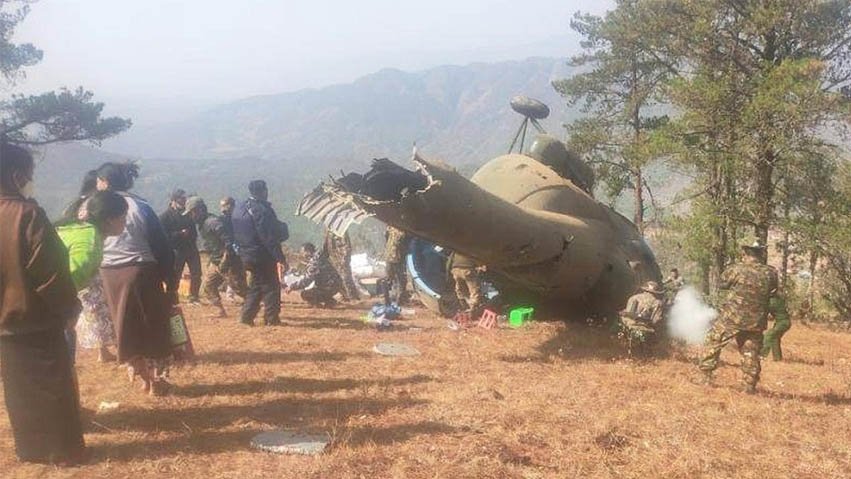
According to Myanmar's junta, a military helicopter crashed in Hakha, the capital of Chin State, on Tuesday morning, injuring five individuals on board.
Since June, there have been three air force crashes.
Due to its largely obsolete aircraft, Myanmar's air force is infamous for frequent deadly crashes, even during training manoeuvres.
Tuesday's tragedy was blamed on "instability in the air" when the helicopter attempted to land at a battalion headquarters in Hakha, according to the regime.
The tail has been severed from the body in photographs.According to the regime, the chopper was carrying exam materials for school assessments on Thursday.
"All three civilians on board and two military members were injured, but not seriously," the statement continued.
The junta often used airstrikes against opposition troops in the Sagaing and Magwe regions, as well as the states of Chin, Karen, and Kayah.
On social media, the crash was greeted with cheers, with people claiming that it meant there would be one less helicopter available to combat opposition fighters.
A military plane crashed near Anisakan Airport in Pyin Oo Lwin Township, Mandalay Region, killing 12 persons, including one of Myanmar's most powerful Buddhist monks and numerous military officers.Due to a technical fault, a jet fighter pilot was killed when his plane crashed into a lake in Sagaing Region last month.
A military plane crashed into the Andaman Sea in 2017, killing all 122 passengers and crew members.
The authorities put it down to terrible weather.
Chin State, airstrikes, air force, helicopter, people's war, political prisoners, People's Defense Force, PDF, junta, National Unity Government, civilian deaths, crackdown, military regime, State Counselor Daw Aung San Suu Kyi, coup, military in politics, Tatmadaw, National League for Democracy, human rights, democracy, November 8 general election, Min Aung Hlaing, State Administrative Council, civil disobedience movement -
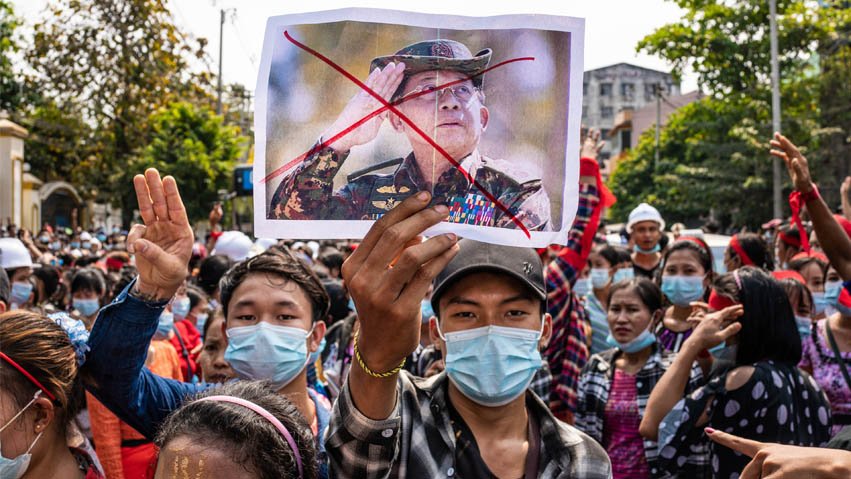
During a speech on Armed Forces Day, Myanmar's junta commander claimed the military would not talk with "terrorist" opposition forces, vowing to annihilate them, as opponents of last year's coup promised to fight on.
For the second year following ousting Nobel laureate Aung San Suu Kyi's elected government on February 1, 2021, the military, known as the Tatmadaw, celebrated with a parade of troops and weapons in the capital, Naypyidaw.
On Sunday morning, anti-coup demonstrators marched through Myanmar's streets, holding placards that said "uproot the fascist military."
In his speech, Junta leader Min Aung Hlaing opposed any dialogue with the "terrorist" opposition.
The Association of Southeast Asian Nations' five-point peace plan asks for negotiations on all parties, but there has been little movement so far.
"I would want to state that the Tatmadaw will no longer consider negotiations with terrorist groups and their sympathisers for the murder of innocent people... and will eradicate them to the finish," he stated.In its resistance effort, the junta blames opposition militants of killing civilians and security forces, while activists claim the military has killed hundreds in crackdowns since the coup.
Myanmar people will take out the military and its fascist root and stem, according to the National Unity Government (NUG), the deposed administration's shadow government.
In a statement, NUG spokesman Dr. Sasa said, "Together with the souls of our lost soldiers, we shall fight to the bitter end."
Since the military seized power, Myanmar has been beset by violence, upending a decade of fragile democratic and economic progress.
According to the rights group Assistance Association for Political Prisoners, more than 1,700 people have been slain and nearly 13,000 have been jailed (AAPP).
The AAPP estimates, according to military officials, are overstated.
The army was accused of war crimes and crimes against humanity by the United Nations last week.
-
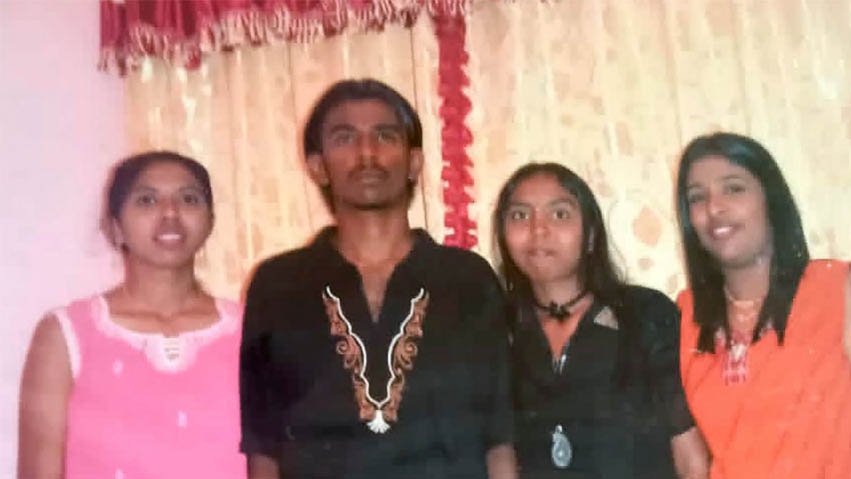
A Malaysian man with a mental handicap, according to a lawyer and activists, has lost his final court appeal against his death sentence in Singapore and will be executed soon.
Malaysia (Malaysia)
According to a lawyer and rights campaigners, a Malaysian man with a mental handicap lost his final court appeal against his death sentence in Singapore on Tuesday and would be executed soon.
Nagaenthran K. Dharmalingam has been on death row since 2010 for attempting to import heroin into Singapore in quantities of less than 43 grammes (1.5 ounces).
His IQ was shown to be 69 during a previous court hearing, which is a level internationally recognised as intellectual handicap, yet the judge ruled Nagaenthran knew what he was doing when he broke Singapore's strict anti-drug legislation.M. Ravi, a lawyer aiding the case, stated on Facebook that Nagaenthran's appeal was "an abuse of process and that international law does not apply," according to Singapore's top court.
"Nagaenthran, who is mentally ill, will most likely be hanged in the next days," he stated.
Nagaenthran faces execution unless Singapore President Halimah Yacob grants him a pardon, according to the UK-based rights group Reprieve.
"The Singaporean government has made it plain that it is committed to championing the rights of disabled people."
Allowing this mockery of justice to occur would betray those pledges, according to Reprieve director Maya Foa."We implore President Halimah Yacob to heed the cries for mercy from around the world, from the United Nations to global business leaders, and spare the life of this helpless man."
In a statement, Foa said.
In Singapore, anyone caught with more than 15 grammes (0.5 ounces) of heroin gets the death penalty, though judges have the power to commute this to life in prison.
Nagaenthran was condemned to death in 2010, and efforts to commute his sentence to life in prison or obtain a presidential pardon were unsuccessful.Malaysia's prime minister, European Union members, and global celebrities such as British business billionaire Richard Branson have all asked for Nagaenthran's life to be spared, and have used the case to advocate for the abolition of the death penalty.
Singapore's home affairs ministry responded by stating that the government takes a "zero-tolerance approach against illicit substances" and that the death sentence is clearly enforced at the country's borders. -
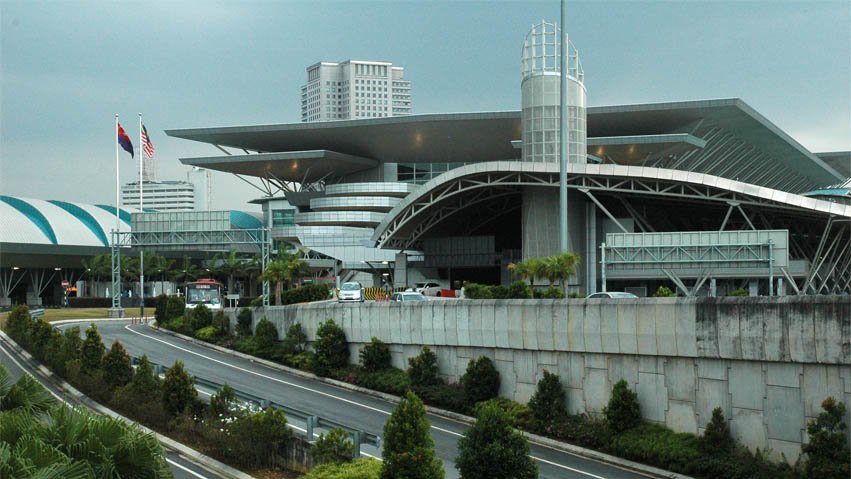
This comes as Malaysia and Singapore seek to make ground travel between the two countries easier starting April 1.
To facilitate vehicle traffic, the Malaysian government has stated that toll rates at the Causeway and Second Link immigration facilities will be abolished between April 1 and 7.
The seven-day exception applies to all types of automobiles, Prime Minister Ismail Sabri Yaakob said in a statement on Wednesday (Mar 30)."This is in keeping with the strategy to make cross-border travel easier with Singapore."
Malaysians and other users who top up or renew their Touch 'n Go and Smart Tag would be exempt," he added.
To avoid congestion at the two immigration checkpoints - Bangunan Sultan Iskandar at the Woodlands Causeway and Kompleks Sultan Abu Bakar at the Tuas Second Link - the toll charges at the immigration complexes will be waived on top of the RM20 (S$6.43) road charge exemption announced on Monday for Singapore-registered vehicles.Mr Ismail Sabri went on to say that the toll exemption will apply to people who enter and exit Malaysia via toll plazas.
"The decision also takes into account the fact that the land border between Malaysia and Singapore has been closed for two years, and the restoration of the land border would ensure smooth traffic flow at both toll plazas," he added.The Malaysian highway operator PLUS predicted that at least 42,000 vehicles would enter Malaysia via the Causeway and Second Link each day, according to the prime minister's announcement.
He went on to say that the decision to waive tolls will likely assist 300,000 people.
"As a result, PLUS is working hard in its last preparations, in collaboration with the Johor state government, ministries, and associated agencies, to ensure smooth highway rides in line with the border reopening," stated the prime minister.Mr Ismail Sabri added that toll plazas, rest and relax stopovers, and all public amenities on motorways were being prepared.
"With the reopening of the borders, the government welcomes the return of Malaysians to Singapore and the entrance of Singaporeans in Malaysia," he added.
As Malaysia reopens fully to foreigners on Friday, properly vaccinated tourists will be allowed to pass the land border between Singapore and Malaysia without quarantine or COVID-19 swab testing.
All kinds of transportation, including private vehicles such as cars and motorcycles, will be available to passengers.
According to Malaysia's Transport Ministry, cross-border public transit services will restart on Friday. -
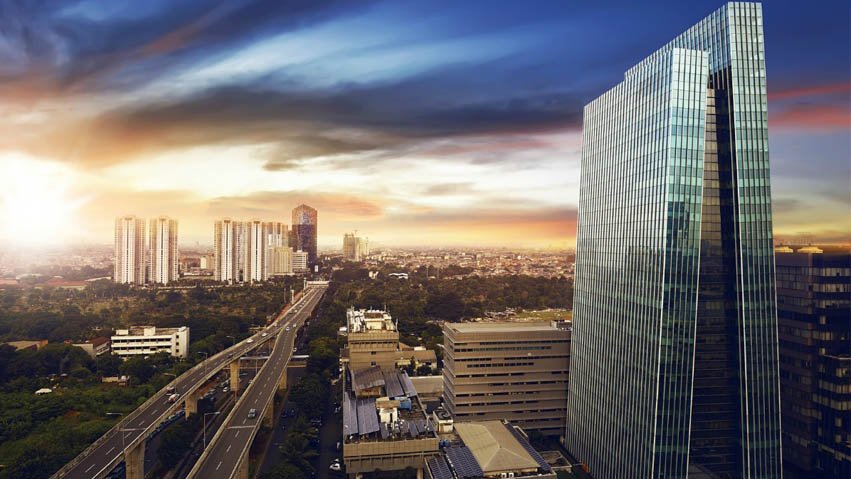
Indonesian President Joko Widodo promised a clean, green, high-tech utopia when he revealed his proposal to establish a new capital city in 2019.
The new capital, which would be located on Borneo's island, would be a rainforest metropolis with meandering canals and bold, contemporary buildings tucked beneath a tropical forest canopy.
Residents would be whisked between urban clusters intended to foster innovation in high-value industries such as education, health, and technology by a sleek, high-speed transportation system.Jokowi, as Indonesia's president is known, was elected in 2014 on a promise to transform the country's economy, which has long been hampered by red tape and corruption, into a modern, market-oriented system with world-class infrastructure, which will enhance the country's appeal to foreign investors.
The sparkling, $32.5 billion centrepiece of Jokowi's great vision for Indonesia's future was to be Nusantara, the name chosen for the new capital.





Indonesia's prohibition on palm oil exports raises concerns about global food costs
in Indonesia General Chat
Posted
Every country will suffer, according to experts, as the world's largest producer of palm oil restricts exports of the commodity used in food, cosmetics, and cleaning products.
Experts have predicted that the price of edible oils such as soyoil, sunflower oil, and rapeseed oil will rise as a result of Indonesia's unexpected restriction on palm oil exports.
Due to bad weather and Russia's invasion of Ukraine, major edible oils are already in low supply.
The decision by Indonesia to halt exports will put more strain on cost-conscious customers in Asia and Africa who are already dealing with rising fuel and food prices.
According to James Fry, chairman of commodities consultant LMC International, "Indonesia's decision affects not only palm oil availability, but vegetable oils worldwide."
Palm oil, which is used in everything from cakes and frying fats to cosmetics and cleaning goods, accounts for about 60% of global vegetable oil shipments, with Indonesia accounting for roughly a third of all exports.
It announced the export embargo on April 22nd, which would be in effect until further notice, in order to combat growing domestic prices.
"This is happening at a time when all other major oils' export tonnages are under strain: soya bean oil due to droughts in South America; rapeseed oil due to terrible canola crops in Canada; and sunflower oil due to Russia's assault on Ukraine," Fry explained.
"No one can substitute for the loss of Indonesian palm oil," stated Rasheed JanMohd, chairman of the Pakistan Edible Oil Refiners Association (PEORA).
Every country will be affected."
Prices for vegetable oils have already climbed more than 50% in the last six months as a result of causes ranging from labour shortages in Malaysia to droughts in Argentina and Canada, the two largest producers of soyoil and canola oil, respectively.
Buyers had hoped that a strong sunflower crop from top exporter Ukraine would alleviate the shortage, but supplies from Kyiv have ceased as a result of Russia's invasion.
This had led importers to believe that palm oil would be able to fill the supply shortfall until Indonesia's surprise embargo hit purchasers with a "double punch," according to Atul Chaturvedi, head of the Solvent Extractors Association of India (SEA).